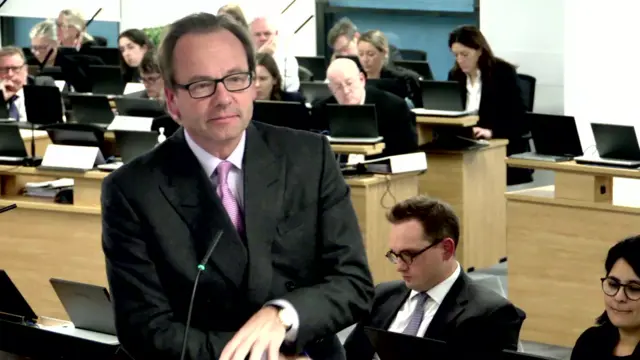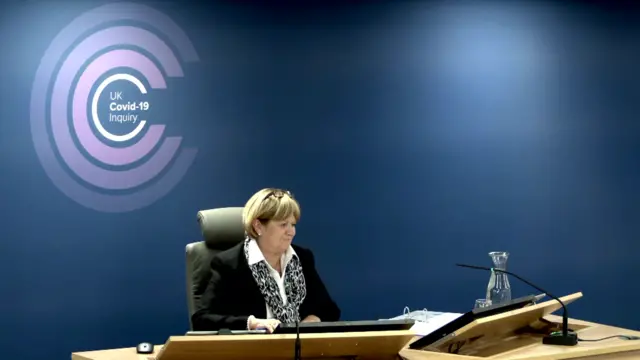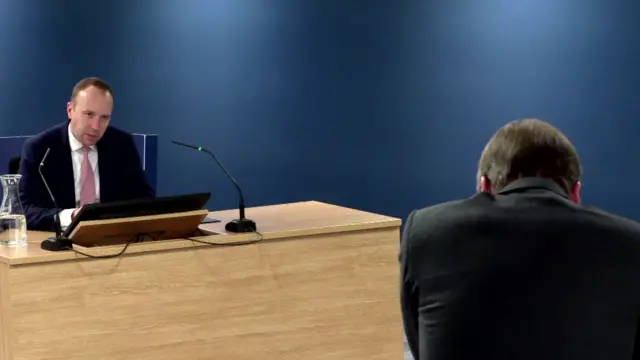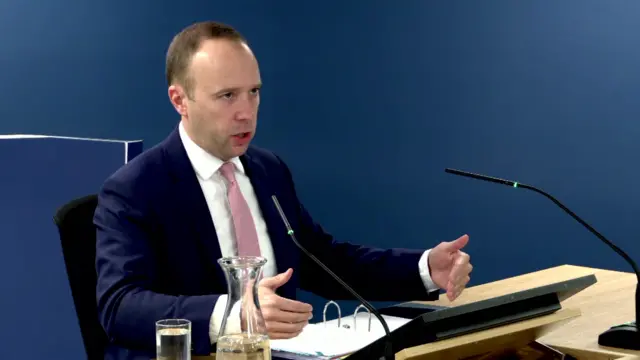Hancock says he was in favour of all the action to reduce R numberpublished at 15:29 GMT 30 November 2023
Just before the break, the KC continued probing Hancock about whether lockdown could have been imposed earlier.
He puts it to Hancock that given "dramatic" measures were put in place on 20 March - closing schools, stopping non-essential travel, retail etc - the government could have waited to see if these had the desired effect on the R number instead of implementing a full lockdown so soon after.
Hancock replies that "exponential growth" was happening over the weekend and the government had "greater confidence" that the country was on track for the reasonable worst case scenario.
He also says that assessments had suggested reduction of human interaction - which Sage said would need to be down by 75% to slow down the spread of the virus - was not going to be enough.
Pressed again on this question, Hancock adds that the government believed compliance would start at a maximum and then degrade (i.e. people would soon stop following the advice to limit interaction) - although he admits this did not happen.
From his seat, he says he was in favour of "all the action you could possibly take".







